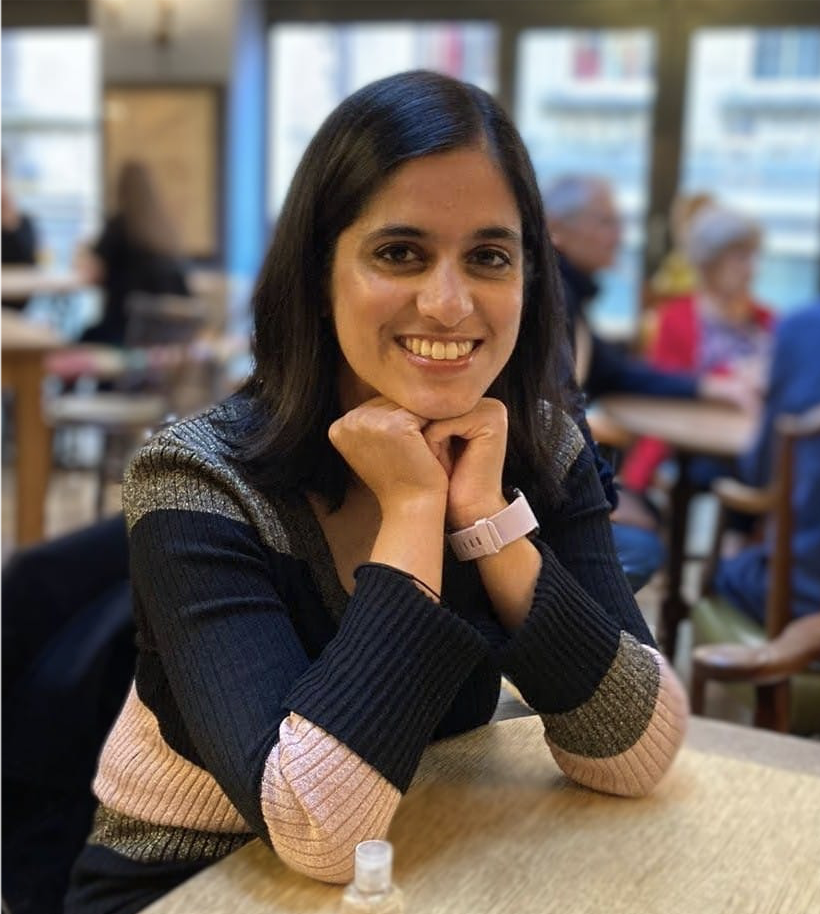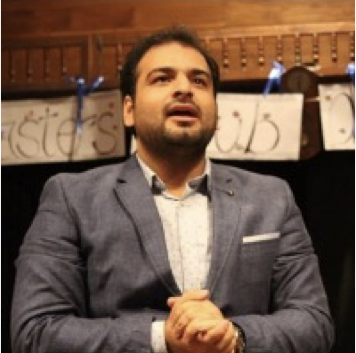
From Medicine to Tax – an Unconventional Journey
Aniketa Khushu
“Who would like to palpate Mr X’s kidney?” That’s a sentence from my first year of medical school that will always stick with me. I was in a hospital with other medics from my college and our supervisor asked us the question. The first three years of the course were mainly concentrated on the science underlying Medicine, and they didn’t usually set us free in a clinical setting until the last three years. But this was a rare occasion when we were allowed early patient contact.
Instead of embracing the opportunity, I stood near the back of my group and avoided eye contact with the supervisor so that I didn’t have to examine the patient. That was one of the many moments I wondered, “why am I here?” Other moments included standing round a cadaver and doing everything in my power to not take the lead on that week’s dissection; trying to stay alert for a 55-minute in-depth analysis of the workings of the knee joint; dragging my feet into the biochemistry department for another two-hour practical; multiple all-nighters while trying to write physiology essays. The list goes on and on.
So why was I studying Medicine, you may ask? Easy: I thought I wanted to be a doctor.
Spoiler alert: I’m not a doctor.
Looking back, I wasn’t one of those children who always knew what I wanted to be. I’d dream about joining an orchestra or becoming a concert pianist at weekly music lessons and band practice. When I won a national writing competition, I toyed with the idea of studying creative writing. But as much as I loved reading, writing, and playing music, having to sit exams in these subjects was a very different concept. Music theory exams stripped away almost all the joy I got from piano playing. Analysing poetry was exasperating. Perhaps I was too quick to discount them, but I shoved music and literature firmly into the ‘hobbies’ box, and they never
re-emerged.
Other ideas still floated around in the career box. When I was 14 and tasked with presenting a news report in our English class, I fleetingly decided that being a news presenter would be fun. When we started applying for work experience in Year 11, I wrote to various local law firms because I thought I wanted to be a solicitor. Peering into the dark tinted windows of the offices at the local Building Society every time I walked to the shops made me wonder whether banking would be an interesting job.
So how did I end up studying medicine? None of the previous ideas ever felt real or achievable. Instead, they felt like the images of a marble cake in a book without the accompanying ingredients or recipe. I didn’t know how to get there. Medicine, on the other hand, was something familiar. My sister was studying Medicine at university. My father was a doctor, and almost all our family friends were in the medical profession. I’d been surrounded by doctors my whole life, and there were scores of people who could guide me through the process.
So, when I didn’t hear back from any of the law firms to which I applied for work experience, I ended up at the local hospital where my school had an established programme. And I enjoyed it! The hospital was somewhere I could picture myself in the future because I already had a connection to it. I could see first-hand what everyone in my life did when they weren’t at home. I was finally in the club, no longer watching from the side-lines. I suppose it’s also inevitable that, with a doctor and a teacher for parents, the only professions I truly understood were theirs. Everything else was just an abstract concept. Not obtaining work experience at a law firm meant I was no closer to understanding what solicitors did in their job. How did people end up reading the 10 o’clock news or interviewing celebrities? And what did bankers spend their days doing behind their desks?
Perhaps the main reason I got sucked into medicine was that I was terrified to venture on unknown paths. I wasn’t a risk-taker, and I didn’t have the confidence to stray outside my comfort zone. But a combination of being away from home for the first time and being surrounded by students who were deeply motivated to become doctors sped up my realisation: I didn’t want to study anatomy, physiology, and biochemistry.
By the time I reached the start of my second year at university, something had to change. Luckily, I was at a university that allowed us to switch degrees relatively easily. I was also lucky that I had a family who supported me through the change, who told me to choose what I wanted to do, not to follow what those before me had done. The move from Medicine to Biological Natural Sciences was a smooth transition because the first year for both courses included very similar content. Switching to Natural Sciences gave me more freedom to pick and choose the subjects that inspired me. At the time, I was inspired by anything to do with the brain, such as neuroscience and psychology.
That didn’t mean the transition was easy. The scariest part was moving away from a career path I’d assumed I would continue following for the next 50 years. Although there are still choices to be made along the way in Medicine, my path had roughly been set, and I had known where I was going. When I moved to Natural Sciences, I ripped that rug out from underneath me. I wondered ‘what if?’ multiple times over the next couple of years. What if I had stuck with medicine? What if I had continued into the clinical years? What if I had been too hasty in making my decision to change courses? For the rest of my degree, I felt like I was floundering. Other people on my course were applying for internships and graduate jobs, and I was playing catch up. Everyone seemed to know what they wanted to do. I didn’t know anything apart from science. After studying science continuously since A-levels, I needed to make a clean break. Especially if I was going to move forward and truly leave medicine behind me.
It was only after I graduated that I fully appreciated the breadth of choice available to me. I could choose research, publishing, editing, finance, human resources, sales, logistics, marketing, or consulting. And that’s to name a few. At that point, I didn’t even understand what most of those words meant. But the advantage of not knowing much about my options was that I applied for anything and everything without any preconceptions of what I thought I might like. I started revisiting my old fascination with law. Perhaps this was my second chance to figure out what lawyers did in their day-to-day roles. Finance was another avenue I wanted to explore, and it seemed to be a less daunting option with all the graduate schemes available. So, when I came across a job for a trainee Tax Adviser that was described as ‘a mixture of law and accountancy’, I applied immediately.
Six years later, I’m a Tax Adviser. I’ve completed two sets of professional qualifications along the way and progressed up to the role of Assistant Manager. I never imagined this would be my life, but I enjoy it: the office job, the structured hours, the work-life balance. I sometimes laugh at how eager my younger self was in my interviews for a Medical place at university, but then I remind myself that I was only 18 years old. How many people truly know what they want out of life when they’re 18? Hindsight is always useful, but even if I could go back and give my teenage self some advice, I don’t think I would. I wouldn’t change the decisions I made or the trajectory of my life and career.
Other people may find it strange, but I love the journey I’ve been on. When I see teachers and old friends from secondary school and tell them I left Medicine to become a Tax Adviser, I see confusion flash through their eyes before they nod and say, “Oh, that’s interesting”. It’s understandable – I was the good student who did all the right voluntary work, got the highest marks country-wide in an A-level chemistry paper and participated in all the (non-sports related) extra-curricular activities. Medicine at Cambridge University was something they could reconcile with that image. 10 years later, I’m a science graduate working in tax who’s entered a half-marathon race for the first time; not something they anticipated from the chubby teenager who left school excited to become a doctor. But it’s ok to change. It’s ok to evolve and become something other than what people expect you to be.
So, what lessons have I learned from my experiences that I hope to pass on to others?
- It’s important to be able to recognise when you need to change direction, to push through the fear of failing and aim for opportunities that seem elusive.
- Choosing a different path doesn’t mean you’re giving up on something; it means you’re looking for more opportunities and finding your way. If life is a journey, then changing direction every so often is a good way of gaining a different perspective, as many of us have found over the last 18 months.
- Be brave and take that next step, wherever it leads you!
Aniketa is a Senior Tax Executive at CKLG Accountants (Linkedin).






